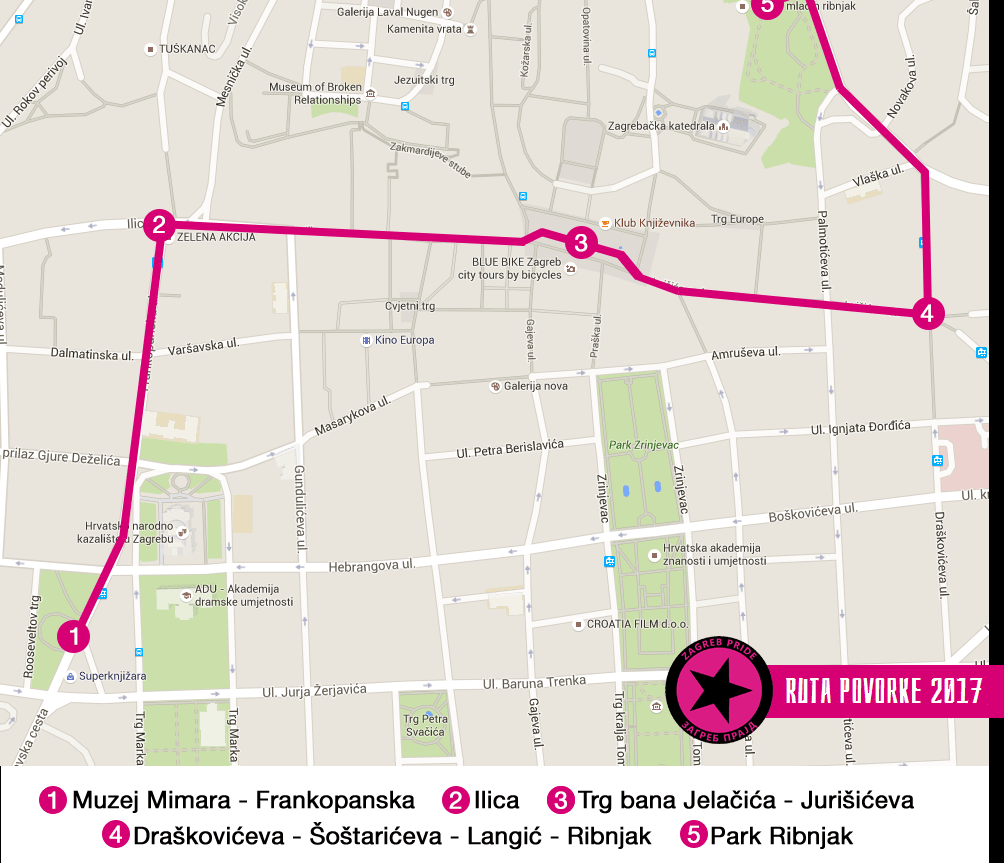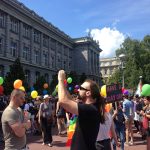Earlier today, the Guardian reported on Zagreb Pride March, which will take place this Saturday, June 10. The introduction of the article states that “some locals worry that the city’s growing potential is being choked by corrupt politics,” while later in the article focus is put on the fact that, in addition to being a celebration, Pride should be about rights and have political connotations as well.
The first Zagreb Pride March in 2002 saw only 300 participants, and there were many protesters. During the first Pride March through the city center, numerous by-standers insulted and verbally abused the participants of the march. Tear gas was thrown at the attendees gathered at Zrinjevac Park. After the Pride March, organized groups of nazi-skinheads beat up about 20 people. 27 people were arrested. No one was ever charged with vandalism, assault or discrimination.
Even though the situation is getting calmer, “It’s an ‘alternative fact’ to say that homophobia isn’t a big problem in Croatia,” says Zagreb-based journalist Ana Brakus for the Guardian, borrowing a phrase from Donald Trump.
Zagreb is one of the rare cities in the region to host a Pride event and there are fewer incidents every year, with around 10,000 people marching through the city.This is what the parade looked like in 2016:
This year’s route starts at the Mimara Museum, continues along Frankopanska street and Ilica to Ban Jelačić Square, then through Jurišićeva onto DraškovićevaSstreet and heading to Josip Lang Square and Ribnjak. The parade ends at Ribnjak Park. The route is approximately 2,3 km long.

www.zagreb-pride.net
This year’s motto is “A Free Life Begins with Pride.” The manifesto states that Zagreb Pride members want a life free from violence and demand for hate crimes against LGBTIQ population to be efficiently processed. They ask for a society of solidarity in which everyone will stand together against poverty, violence and discrimination. Read the full manifesto here.
Same-couple life partnership has entered into force in Croatia in 2014 and 174 were entered into in Croatia in 2016, most of them in Zagreb.

Zagreb Pride, Facebook
In May this year, deputy UK Ambassador Peter Clements and a few other ambassadors attended an event on International Day against Homophobia, Transphobia & Biphobia at SuperSuper, a gay club where an incident involving tear gas, when several people were injured, took place in February this year. Despite that and a recent incident at Hangar club, when security threw out a Brazilian man who kissed his boyfriend, Croatia ranks 11th in Europe when it comes to gay rights.









